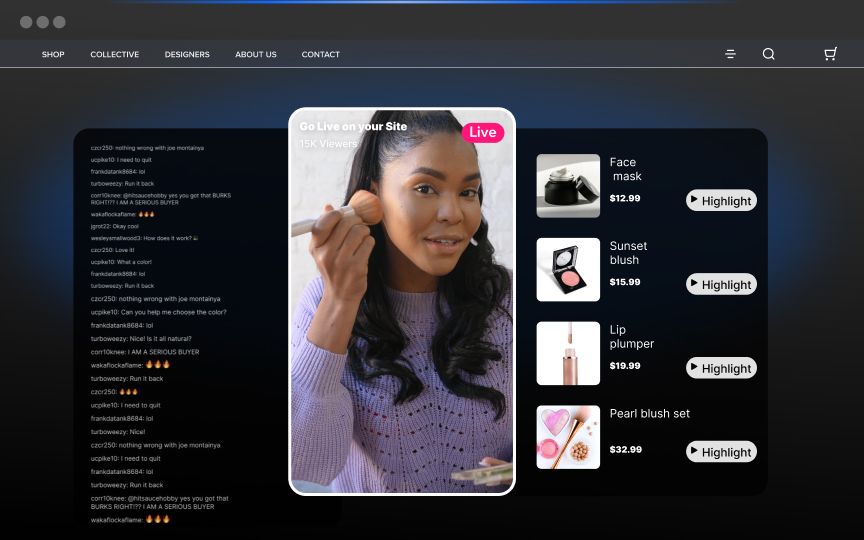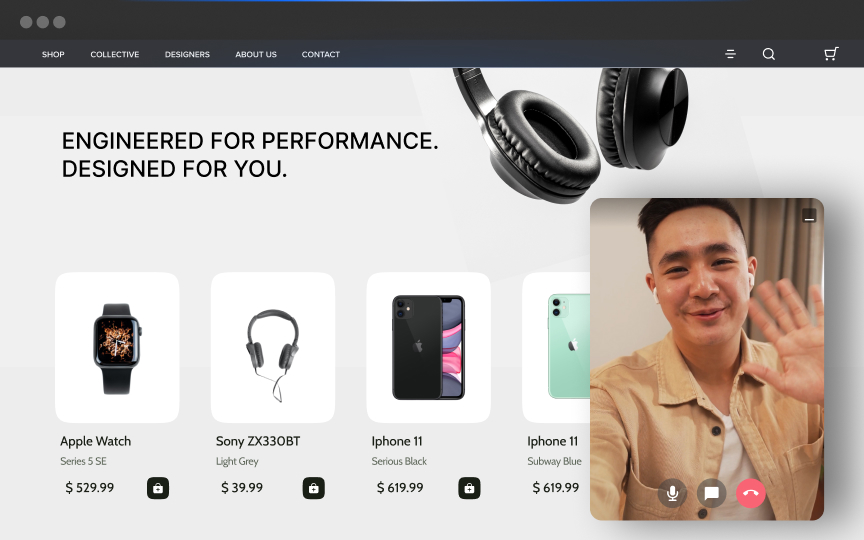Harnessing the Power of Artificial Intelligence in Retail and E-commerce: The Ultimate Guide
The world of retail and e-commerce has always been at the forefront of adopting and leveraging new technologies to drive growth, improve customer experiences, and optimize operations. Artificial intelligence (AI) has rapidly emerged as a game-changing force in the retail sector, poised to revolutionize everything from inventory management to customer engagement.For marketers at retail brands, understanding and tapping into the potential of AI is no longer optional—it’s essential. Here’s your comprehensive guide.
What Is the Revolution of AI in Retail and E-commerce?
The dawn of artificial intelligence (AI) has signified a monumental shift in the retail and e-commerce landscapes. Once a concept relegated to science fiction, AI has become integral to modern commerce, promising both transformative opportunities and competitive advantage.Historically, retailers depended on human intuition and past sales data to forecast trends. Today, AI algorithms, by analyzing vast amounts of data, can predict consumer behaviors with striking precision. For instance, ASOS, an acclaimed fashion giant, utilizes machine learning to tailor product recommendations for its 19.4 million customers, leading to a substantial increase in user engagement and sales.Moreover, AI transcends mere sales prediction. E-commerce platforms are leveraging AI-driven chatbots, enabling 24/7 customer support. These bots resolve queries, and gather crucial user data, refining future interactions and offerings. Amazon's Alexa, a household name, exemplifies AI's capability, facilitating voice-driven shopping experiences and personalizing product suggestions.Another game-changing innovation is the application of AI in visual searches. Platforms like Pinterest employ AI to allow users to search and shop using images, understanding user preferences and suggesting products accordingly.The statistics, too, are telling. According to a study by Capgemini, retailers implementing AI could save up to $340 billion annually by 2022, with 80% of these savings attributed to AI-powered automation of routine tasks.The AI revolution in retail and e-commerce isn’t on the horizon—it's already here. Retailers adopting AI aren’t just streamlining operations; they’re reshaping the fabric of customer interactions, ensuring that personalization, efficiency, and innovation remain at the forefront of modern commerce.
Smart Inventory Management with AI: Navigating the Retail Renaissance
Inventory management, traditionally a mix of intuition and manual oversight, has always been a delicate balancing act for retailers. However, the integration of Artificial Intelligence (AI) has ushered in a revolutionary era of precision, efficiency, and adaptability in this domain.One standout example is Walmart. They've harnessed AI-driven solutions in select stores using their Intelligent Retail Lab. Cameras and sensors track stock levels on shelves, and automated systems immediately replenish any dwindling stock, ensuring customer needs are consistently met1.Such AI-driven systems employ vast data streams, from purchasing histories to seasonal trends, enabling accurate forecasting of stock requirements. This isn't just about reducing surplus or minimizing stock-outs; it's about tailoring inventory to specific customer demographics and preferences. The result? Enhanced customer experiences and streamlined operations.The benefits are more than just theoretical. According to a study by Accenture, 83% of the most aggressive adopters of AI in inventory management reported achieving either moderate or substantial benefits from these systems, including increased sales and reduced costs2.Additionally, AI's adaptability shines when confronted with unpredictable market changes. It continuously learns and evolves. During unforeseen events, such as a pandemic or a sudden surge in a product's popularity, AI-powered tools swiftly recalibrate inventory predictions, ensuring retailers remain agile.AI has transformed inventory management from a historically reactive process to a proactive strategy. For modern retailers, leveraging AI isn't about jumping on a tech bandwagon; it's about maintaining competitiveness and ensuring sustained growth in a dynamic marketplace.
AI and Video Content for Commerce: Scaling the Next Frontier of E-commerce Engagement
Video has firmly established its reign in the world of e-commerce. From product demos to influencer partnerships, AI-generated video is a dynamic medium that captivates audiences, drives engagement, and boosts conversion rates. As demand for diverse and vast video content surges, the creation process can become time-consuming and resource-intensive. Enter Artificial Intelligence (AI)—the unsung hero poised to redefine video content production at scale.AI-driven tools are already transforming how brands approach video content and video commerce. For instance, platforms like Magisto utilize AI to analyze raw video footage, identify the best segments, and then automatically edit and stitch them into polished videos tailored for e-commerce platforms. Firework, the world’s largest video commerce solution for brands, retailers and publishers, brings interaction and community engagement to a brand’s digital storefront through livestream and shoppable video.Moreover, the integration of AI can generate video meta tags based on visual and auditory analysis, optimizing search and enhancing discoverability. Additionally, AI tools can tailor video content to individual viewers in real-time. Imagine a scenario where a viewer watches a fashion brand's video. AI can detect the viewer's past interactions, purchase history, and preferences to dynamically adjust the video, perhaps showcasing a dress color that the viewer is more likely to purchase.Furthermore, with Deepfake technology's advancements, AI can generate lifelike spokesperson videos without human intervention, ensuring brand consistency and scalability3.The financial implications are monumental. According to a report by Animoto, 93% of marketers have landed a new customer because of a video on social media4. With AI, creating these videos becomes faster, more cost-effective, and tailored, amplifying the ROI.As e-commerce continues its upward trajectory, AI in video content production is not a mere luxury—it's a necessity. It promises efficiency, personalization, and, most importantly, the capability to scale in an ever-demanding market.
Personalized Shopping Experiences: The Role of AI in Crafting a Tailored Retail Journey
Modern consumers crave more than just a transaction—they seek a personalized shopping experience. With the digital age dawning upon us, generic marketing campaigns and one-size-fits-all strategies are fading into obsolescence. Artificial Intelligence (AI) emerges as the transformative tool, reshaping the landscape of customer engagement and personalization in retail.Though not a traditional retailer, Netflix is a shining example of personalization mastery. By leveraging AI, Netflix provides bespoke content recommendations, enhancing user engagement and satisfaction. Similarly, e-commerce platforms, like Amazon, utilize complex AI algorithms to analyze browsing history, past purchases, and even product views to offer product suggestions that resonate on an individual level.But AI's role in personalization isn’t limited to online suggestions. In physical stores, AI-powered apps and augmented reality (AR) tools allow shoppers to visualize products in real-life settings or even try on outfits virtually. For instance, the Lacoste AR mobile app lets shoppers "try on" shoes virtually before making a purchase decision.According to a report by Kustomer, 77% of consumers like it when businesses communicate to them in a proactive and personalized way. In essence, AI-driven personalization is the cornerstone of modern retail. By understanding individual preferences and predicting needs, AI ensures that retailers meet and exceed customer expectations, fostering loyalty and driving revenue growth.
AI-Powered Chatbots: Revolutionizing Customer Service
In an age where instantaneous responses have become the norm, traditional customer service methods can feel outdated and sluggish. Enter AI-powered chatbots: the game-changers set a new gold customer interaction standard. These self-learning, always-on assistants redefine how businesses engage with their consumers, ensuring timely, relevant, and often personalized communication.Consider the global success of Sephora’s chatbot. It doesn't merely answer customer queries; it offers makeup tutorials, product recommendations, and reviews, providing a comprehensive and interactive shopping experience1The underlying strength of AI chatbots is their ability to manage vast volumes of queries simultaneously without compromising the quality of responses. This ensures reduced wait times, a common grievance among customers. Gartner predicts that by 2025, customer service organizations that embed AI in their multichannel customer engagement platform will elevate operational efficiency by 25%.Moreover, chatbots can seamlessly integrate with CRM systems, accessing customer data to deliver more tailored service solutions. A report by Salesforce found that 64% of agents with AI chatbots can spend most of their time solving complex problems, compared to 50% of agents without.The dawn of AI chatbots is not merely a technological advance—it's a paradigm shift in customer service. For businesses, it’s an opportunity to enhance customer satisfaction, streamline operations, and realize significant cost savings. For customers, it promises faster, more intuitive, and personalized service experiences. And the quantum leap is not over yet for chatbots: the development of AI-generated video bot is well underway with the ability to conduct 1:1 video chat between a brand and its customer. The tech triumvirate is on the way: AI, video and bot, all together.
Predictive Analytics: Forecasting the Future of Retail
The retail landscape, once driven by intuition and experience, has been radically transformed by the advent of predictive analytics. This powerful tool harnesses historical data, customer behavior, and AI algorithms to generate insights, allowing retailers to anticipate future trends, demands, and potential challenges.Macy's, one of America's iconic department stores, has fully embraced this technology. They use predictive analytics to personalize online shopping experiences for each customer, leading to a significant uptick in sales. The results? A 10% increase in online sales is a testament to the efficacy of data-driven predictions.But the implications extend beyond mere sales predictions. Inventory management, for example, has been revolutionized. Predictive models help retailers determine how much of a product to stock, when to reorder, and even where to position it in a store for maximum impact.The financial benefits are undeniable. According to a report by McKinsey & Company, retail sectors harnessing the full power of big data could increase their operating margins by up to 60%. More importantly, these predictions give retailers the foresight to adapt to shifts in consumer behavior, such as the recent surge in online shopping or the demand for sustainable products.However, it's not just about the numbers; it's about the customer. Predictive analytics helps brands tailor marketing efforts, ensuring promotions and offers resonate with individual consumers. A study by Accenture highlighted that 91% of consumers are more likely to shop with brands that recognize and remember them, offering relevant offers and recommendations.In essence, predictive analytics isn't a passing trend—it's the future of retail. Retailers that integrate these tools will be positioned to respond to the market's ebbs and flows and anticipate them, ensuring sustainability, profitability, and enhanced customer satisfaction.
Enhancing In-Store Experiences with AI: Crafting the Retail Future
Stepping into a brick-and-mortar store can be an immersive experience: the tactile sensation of products, the ambiance, and the face-to-face interactions. Yet, in today's digital age, consumers also yearn for efficiency and personalization. This is where AI transforms the traditional store into a retail wonderland.Rebecca Minkoff’s stores in New York and Los Angeles have blazed the trail. Their fitting rooms are equipped with intelligent mirrors. When a customer walks in with an item, the mirror recognizes it, offers complementary products, and adjusts lighting based on the clothing type.The power of AI doesn’t stop there. Facial recognition technology can identify returning customers, allowing retailers to offer tailored promotions or recommendations based on past purchases. Another transformative element is the AI-powered robot assistants. Lowe's "LoweBot" navigates the aisles, assists with inventory monitoring, and even answers customer queries, elevating the shopping experience to new heights.These AI-enhanced in-store experiences are not just for show; they drive significant ROI. Per a Retail Dive report, 55% of consumers cited a fun in-store experience as a primary driver for choosing brick-and-mortar over online shopping.Integrating AI into physical retail spaces bridges the gap between digital efficiency and tangible experiences. It's the melding of the best of both worlds. As the retail landscape continues to evolve, AI stands at the forefront, promising survival and a thriving, immersive future for in-store shopping.
Utilize AI in E-commerce with Firework
Artificial intelligence is not merely a buzzword—it's a transformative tool, setting a new paradigm in retail and e-commerce. By harnessing its power, from personalized product videos to advanced predictive analytics, retail brands can position themselves at the pinnacle of modern commerce,. The future of AI-generated video looks bright, with advancements in AI technology and integration with other technologies, such as AR/VR, providing even more opportunities for digital-first brands to create engaging and immersive experiences for their customers, bringing that in-store shopping experience online.Utilizing emerging technology to create video commerce has never been this seemless. Learn how Firework can help, book a demo today!








.png)
